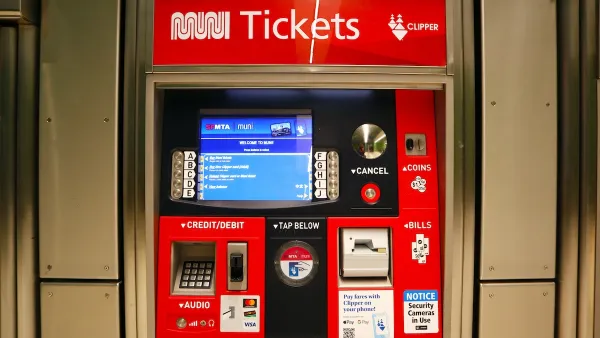Sabrina Tavernise explores "one of the most important developments in the recent economic history of this country" - the growing divide between metro areas with large numbers of college graduates, and those struggling to keep those they have.
In a trend that has only surfaced in the last few decades, but was accelerated by the recession, the gap between cities with high numbers of college grads and those at the other end of the spectrum, "shows signs of widening as college graduates gravitate to places with many other college graduates and the atmosphere that creates."
According to Tavernise, recent analysis by the Brookings Institution shows that, "The winners are metro areas like Raleigh, N.C., San Francisco and Stamford, Conn., where more than 40 percent of the adult residents have college degrees...Metro areas like Bakersfield, Calif., Lakeland, Fla., and Youngstown, Ohio, where less than a fifth of the adult residents have college degrees, are being left behind."
Why is this disparity important? "In a pattern that is part education, part family background, college graduates tend to have longer life expectancies, higher household incomes, lower divorce rates and fewer single-parent families than those with less education, and cities where they cluster tend to exhibit those patterns more strongly."
FULL STORY: A Gap in College Graduates Leaves Some Cities Behind

Planetizen Federal Action Tracker
A weekly monitor of how Trump’s orders and actions are impacting planners and planning in America.

San Francisco's School District Spent $105M To Build Affordable Housing for Teachers — And That's Just the Beginning
SFUSD joins a growing list of school districts using their land holdings to address housing affordability challenges faced by their own employees.

The Tiny, Adorable $7,000 Car Turning Japan Onto EVs
The single seat Mibot charges from a regular plug as quickly as an iPad, and is about half the price of an average EV.

Seattle's Plan for Adopting Driverless Cars
Equity, safety, accessibility and affordability are front of mind as the city prepares for robotaxis and other autonomous vehicles.

As Trump Phases Out FEMA, Is It Time to Flee the Floodplains?
With less federal funding available for disaster relief efforts, the need to relocate at-risk communities is more urgent than ever.

With Protected Lanes, 460% More People Commute by Bike
For those needing more ammo, more data proving what we already knew is here.
Urban Design for Planners 1: Software Tools
This six-course series explores essential urban design concepts using open source software and equips planners with the tools they need to participate fully in the urban design process.
Planning for Universal Design
Learn the tools for implementing Universal Design in planning regulations.
Smith Gee Studio
City of Charlotte
City of Camden Redevelopment Agency
City of Astoria
Transportation Research & Education Center (TREC) at Portland State University
US High Speed Rail Association
City of Camden Redevelopment Agency
Municipality of Princeton (NJ)




























